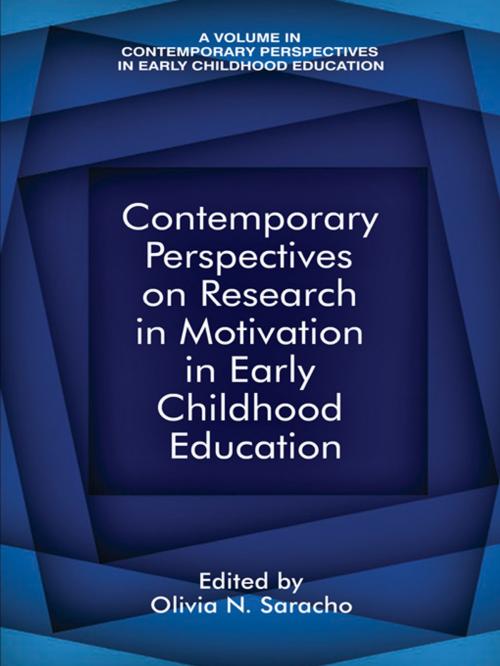Contemporary Perspectives on Research in Motivation in Early Childhood Education
Nonfiction, Health & Well Being, Psychology, Cognitive Psychology, Self Help, Self Improvement, Motivational| Author: | ISBN: | 9781641134910 | |
| Publisher: | Information Age Publishing | Publication: | March 1, 2019 |
| Imprint: | Information Age Publishing | Language: | English |
| Author: | |
| ISBN: | 9781641134910 |
| Publisher: | Information Age Publishing |
| Publication: | March 1, 2019 |
| Imprint: | Information Age Publishing |
| Language: | English |
Researchers from different disciplines (e.g., physiological, psychological, philosophical) have investigated motivation using multiple approaches. For example, in physiology (the scientific study of the normal function in living systems such as biology), researchers may use “electrical and chemical stimulation of the brain, the recording of electrical brain-wave activity with the electroencephalograph, and lesion techniques, where a portion of the brain (usually of a laboratory animal) is destroyed and subsequent changes in motivation are noted” (Petri & Cofer, 2017). Physiological studies mainly conducted with animals, other than humans, have revealed the significance of particular brain structures in the control of fundamental motives such as hunger, thirst, sex, aggression, and fear. In psychology, researchers may study the individuals’ behaviors to understand their actions. In sociology, researchers may examine how individuals’ interactions influence their behavior. For instance, in the classroom students and teachers behave in expected ways, which may differ when they are outside the classroom. Saracho (2003) examined the students’ academic achievement when they matched or mismatched their teachers’ way of thinking. She identified both the teachers and students individual differences and defined consistencies in their cognitive processes. In philosophy, researchers can study the individuals’ theoretical position such as supporting Maslow’s (1943) concept that motivation can create behaviors that augments motivation in the future. Abraham H. Maslow’s theory of self-actualization supports this theoretical position (Petri & Cofer, 2017). These areas and others are represented in this volume. This volume is devoted to understanding mutual and contemporary themes in the individuals’ motivation and its relationship to cognition. The current literature covers several methods to the multifaceted relationships between motivational and cognitive processes. Comprehensive reviews of the literature focus on prominent cognitive perspectives on motivation with young children, which includes ages from birth to eight years of age. The chapters in this special volume review and critically analyze the literature on several aspects of the relationships between motivational and cognitive processes and demonstrates the breadth and theoretical effectiveness of this domain. This brief introduction acknowledges the valuable contributions of these chapters to the study of human motivation. This volume can be a valuable tool to researchers who are conducting studies in the motivation field. It focuses on important contemporary issues on motivation in early childhood education (ages 0 to 8) to provide the information necessary to make judgments about these issues. It also motivates and guides researchers to explore gaps in the motivation literature.
Researchers from different disciplines (e.g., physiological, psychological, philosophical) have investigated motivation using multiple approaches. For example, in physiology (the scientific study of the normal function in living systems such as biology), researchers may use “electrical and chemical stimulation of the brain, the recording of electrical brain-wave activity with the electroencephalograph, and lesion techniques, where a portion of the brain (usually of a laboratory animal) is destroyed and subsequent changes in motivation are noted” (Petri & Cofer, 2017). Physiological studies mainly conducted with animals, other than humans, have revealed the significance of particular brain structures in the control of fundamental motives such as hunger, thirst, sex, aggression, and fear. In psychology, researchers may study the individuals’ behaviors to understand their actions. In sociology, researchers may examine how individuals’ interactions influence their behavior. For instance, in the classroom students and teachers behave in expected ways, which may differ when they are outside the classroom. Saracho (2003) examined the students’ academic achievement when they matched or mismatched their teachers’ way of thinking. She identified both the teachers and students individual differences and defined consistencies in their cognitive processes. In philosophy, researchers can study the individuals’ theoretical position such as supporting Maslow’s (1943) concept that motivation can create behaviors that augments motivation in the future. Abraham H. Maslow’s theory of self-actualization supports this theoretical position (Petri & Cofer, 2017). These areas and others are represented in this volume. This volume is devoted to understanding mutual and contemporary themes in the individuals’ motivation and its relationship to cognition. The current literature covers several methods to the multifaceted relationships between motivational and cognitive processes. Comprehensive reviews of the literature focus on prominent cognitive perspectives on motivation with young children, which includes ages from birth to eight years of age. The chapters in this special volume review and critically analyze the literature on several aspects of the relationships between motivational and cognitive processes and demonstrates the breadth and theoretical effectiveness of this domain. This brief introduction acknowledges the valuable contributions of these chapters to the study of human motivation. This volume can be a valuable tool to researchers who are conducting studies in the motivation field. It focuses on important contemporary issues on motivation in early childhood education (ages 0 to 8) to provide the information necessary to make judgments about these issues. It also motivates and guides researchers to explore gaps in the motivation literature.















